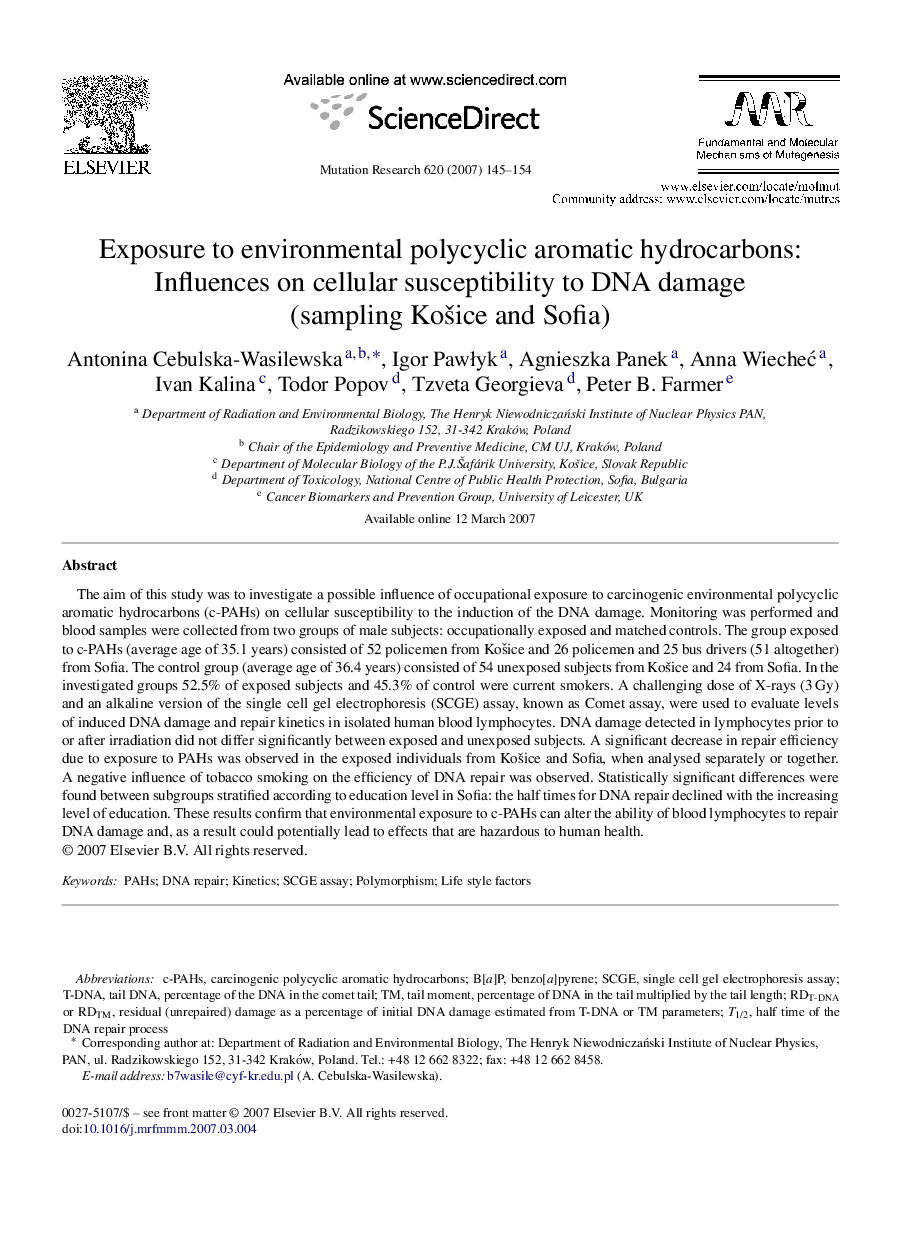| Article ID | Journal | Published Year | Pages | File Type |
|---|---|---|---|---|
| 2147370 | Mutation Research/Fundamental and Molecular Mechanisms of Mutagenesis | 2007 | 10 Pages |
The aim of this study was to investigate a possible influence of occupational exposure to carcinogenic environmental polycyclic aromatic hydrocarbons (c-PAHs) on cellular susceptibility to the induction of the DNA damage. Monitoring was performed and blood samples were collected from two groups of male subjects: occupationally exposed and matched controls. The group exposed to c-PAHs (average age of 35.1 years) consisted of 52 policemen from Košice and 26 policemen and 25 bus drivers (51 altogether) from Sofia. The control group (average age of 36.4 years) consisted of 54 unexposed subjects from Košice and 24 from Sofia. In the investigated groups 52.5% of exposed subjects and 45.3% of control were current smokers. A challenging dose of X-rays (3 Gy) and an alkaline version of the single cell gel electrophoresis (SCGE) assay, known as Comet assay, were used to evaluate levels of induced DNA damage and repair kinetics in isolated human blood lymphocytes. DNA damage detected in lymphocytes prior to or after irradiation did not differ significantly between exposed and unexposed subjects. A significant decrease in repair efficiency due to exposure to PAHs was observed in the exposed individuals from Košice and Sofia, when analysed separately or together. A negative influence of tobacco smoking on the efficiency of DNA repair was observed. Statistically significant differences were found between subgroups stratified according to education level in Sofia: the half times for DNA repair declined with the increasing level of education. These results confirm that environmental exposure to c-PAHs can alter the ability of blood lymphocytes to repair DNA damage and, as a result could potentially lead to effects that are hazardous to human health.
